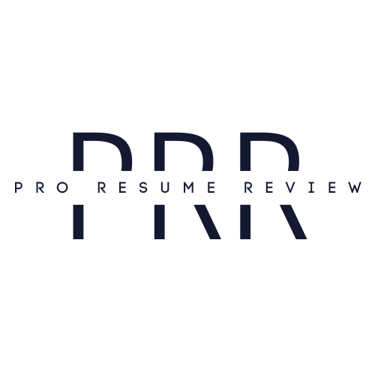Who You Work For Matters—Not Just What You Do
Not all employers are created equal


So you’re starting your career. Maybe you just graduated. Maybe you’re switching things up. Either way, you’re probably wondering: What kind of job do I want?
That’s an important question — but who you work for matters just as much. The type of employer you choose—whether it’s a nonprofit, startup, government agency, or corporate giant—can shape your day-to-day, your paycheck, and how you feel about your work.
These sectors are some of the biggest employers out there, but they’re not the whole story. Your mileage may vary depending on the company, role, and culture. Let’s examine a few of these major types so you can get a clearer picture of what might fit your style and goals.
Private Companies (For-Profit)
This is where most people end up, especially in the U.S. From a small marketing firm to a big brand like Mars, these companies are here to make money.
What it’s like:
Working at a large private, for-profit company usually means structure, resources, and clear expectations—but also a fair amount of mystery. These companies aren’t on the stock market, so they don’t have to share as much publicly. That can mean more flexibility in how they operate, but also less transparency about big-picture decisions.
The work environment tends to be polished and professional, with established processes and room to grow—especially in industries like tech, retail, or manufacturing. Pay and benefits can be solid, but things like company culture, decision-making speed, and leadership style really depend on who's in charge at the top.
If you're someone who values stability but still wants a shot at growth, a big private company might hit the sweet spot. Just keep in mind: less public oversight can mean more room for innovation—or more room for confusion.
This could be your scene if:
If you're self-motivated, adaptable, and like working in a structured environment without the pressure of public shareholders, you’ll probably thrive here. If you value steady growth, a clear role, and a decent work-life balance, this setup could be ideal. And if you want solid pay without constant chaos, large private companies might be your sweet spot.
Nonprofit Organizations
Nonprofits are mission-driven organizations that focus on social impact rather than profit. Examples include food banks, museums, universities, and advocacy groups. Working at a nonprofit can feel mission-first, resource-second. Your days might include anything from planning community events to writing grants or helping run programs directly. Because many nonprofits run lean, you’ll likely take on a variety of roles—and that can be a great way to build experience fast.
What it’s like:
Working at a nonprofit can feel mission-first, resource-second. Your days might include anything from planning community events to writing grants or helping run programs directly. Because many nonprofits run lean, you’ll likely take on a variety of roles—and that can be a great way to build experience fast.
The vibe is likely to be collaborative and purpose-driven. Coworkers may share a passion for the cause, and that shared mission can make the work feel especially meaningful. But with limited funding and small teams, you might face tradeoffs: fewer perks, tighter budgets, and slower tech adoption than in the private sector.
Many nonprofits offer good work-life balance, flexible hours, and a strong sense of community. And because nonprofits span everything from museums to mental health orgs to global relief efforts, the variety of work environments and missions is huge.
This might be your lane if:
Nonprofit work could be a great fit if you care deeply about making a difference and want your job to reflect your values. It’s ideal for people who are flexible, mission-driven, and comfortable pitching in wherever help is needed. If you’re okay with less focus on profits and more on people, this path can offer a sense of purpose that’s hard to find elsewhere.
Government Jobs (Public Sector)
We’re talking local, state, or federal gigs—everything from postal workers to teachers to public health coordinators. These jobs are about serving the public and keeping essential services running.
What it’s like:
Municipal jobs—like working for a city or county—are often known for structure, stability, and strong benefits. You’ll likely have clear job duties, a well-defined chain of command, and predictable hours, which can make it easier to plan your life outside of work. Compared to startups or fast-paced private companies, the pace is usually more measured, and changes happen through established processes.
One of the biggest benefits? You’re directly serving your local community. Whether you’re working in public health, city planning, parks and recreation, or administration, your work has a real and visible impact on the daily lives of residents. There’s often a strong sense of purpose that comes from being part of something bigger than yourself.
Raises and promotions tend to follow a set schedule tied to union agreements, tenure, or civil service exams. That means your path can be predictable—even if it moves more slowly than in the private sector. The benefits are often solid, including retirement plans, health insurance, and generous leave policies. If you value consistency, work-life balance, and community service, municipal work can be a great fit.
This could work for you if:
Municipal jobs are a great fit for people who value stability, routine, and making a tangible impact in their community. If you appreciate clear expectations, reliable hours, and a slower-paced environment, this path offers all of that—with strong benefits to match. It’s especially well-suited for those who find meaning in public service and want a long-term career they can grow into. This setting rewards patience, consistency, and a steady commitment to the public good.
Startups
Small, usually new companies trying to bring innovative products or services to market. Startups can be in tech, manufacturing, food, or just about any industry.
What it’s like:
If you want to get a feel for this culture, check out HBO’s Silicon Valley. If you’ve ever dreamed of working somewhere with bean bag chairs, two employees, and a whiteboard full of chaotic genius—this is it. Startups are small, fast-moving companies trying to build something new from the ground up. You might be working in a shared space, someone’s garage, or an open office that looks like a scene straight out of the show (and sometimes feels like it too).
It’s unpredictable, high-energy, and rarely boring. One day you’re writing code or building a feature; the next, you’re handling customer emails or jumping into a last-minute pitch. Job titles blur, and everyone’s expected to figure things out as they go. That freedom can be thrilling—or overwhelming.
Pay and perks vary wildly. You might not see a huge salary upfront, but equity or stock options could lead to a big payout down the line. Some perks feel legit—like cold brew on tap or flexible hours—while others are more about vibe than value. Still, if you’re scrappy, ambitious, and down to ride the rollercoaster, this might be exactly where you belong.
This could be the move if:
Startups are a great fit for people who thrive in fast-moving, unpredictable environments and don’t mind a little chaos. If you’re flexible, self-motivated, and excited to learn by doing, you’ll likely find the energy of a startup rewarding. It’s especially appealing if you want your work to have a visible impact and you’re okay trading structure for creativity.
Public Companies
These are big-time corporations like Apple, Alphabet, or Target—companies that sell stock to the public and have layers of structure in place.
What it’s like:
Things tend to be polished. Processes are usually clear. Budgets can be big. In a lot of public companies, there’s a structure in place that helps things run fairly smoothly. You might find detailed onboarding, established teams, and solid support systems. The benefits are often strong—think health insurance, 401(k) matches, and professional development resources. If you’re aiming to move up, there’s often a clear path for that, too.
But here’s what doesn’t always show up on the careers page: public companies answer to shareholders. That means stock price matters—a lot. When business is booming, you might see bonuses, team retreats, or upgraded tools. But if the stock drops or leadership wants to impress investors, budgets can tighten fast. Layoffs, hiring freezes, and sudden shifts in strategy can happen—even if your team is crushing it.
Also, while everything looks slick from the outside, it doesn’t always mean the day-to-day is inspiring. There might be nicer things, but not necessarily a nicer environment. Formality rules. Decision-making can be slow, and new ideas might have to pass through layers of approvals before getting the green light. It’s not always easy to stand out or shake things up unless you’ve been there a while.
This might be a fit if:
You like structure, appreciate stability, and want a clear sense of how to grow in your career. If you prefer working within well-established systems and value strong benefits, this kind of environment might suit you. It’s also a solid choice if you're looking for long-term career development and don’t mind waiting a bit for your ideas to gain traction.
Final Thoughts
There’s no “perfect” employer. Some of us want fast growth, others want a job that aligns with our values. Some just want to feel safe, paid, and respected.
The good news? You don’t have to have it all figured out. But knowing the difference between an early-stage startup and a government agency—or a mission-based nonprofit vs a major public company—can help you make smarter decisions and avoid surprises.
Start where you are. Ask questions. Stay curious. You’ve got time to explore and figure out what kind of environment helps you thrive.
Hey New Grads — Ready to Nail Your Next Interview?
Download 5 Interview Tips Every New Grad Should Know — FREE Guide Here!
Learn what recruiters actually want to hear—and how to prep smarter without burning out.
